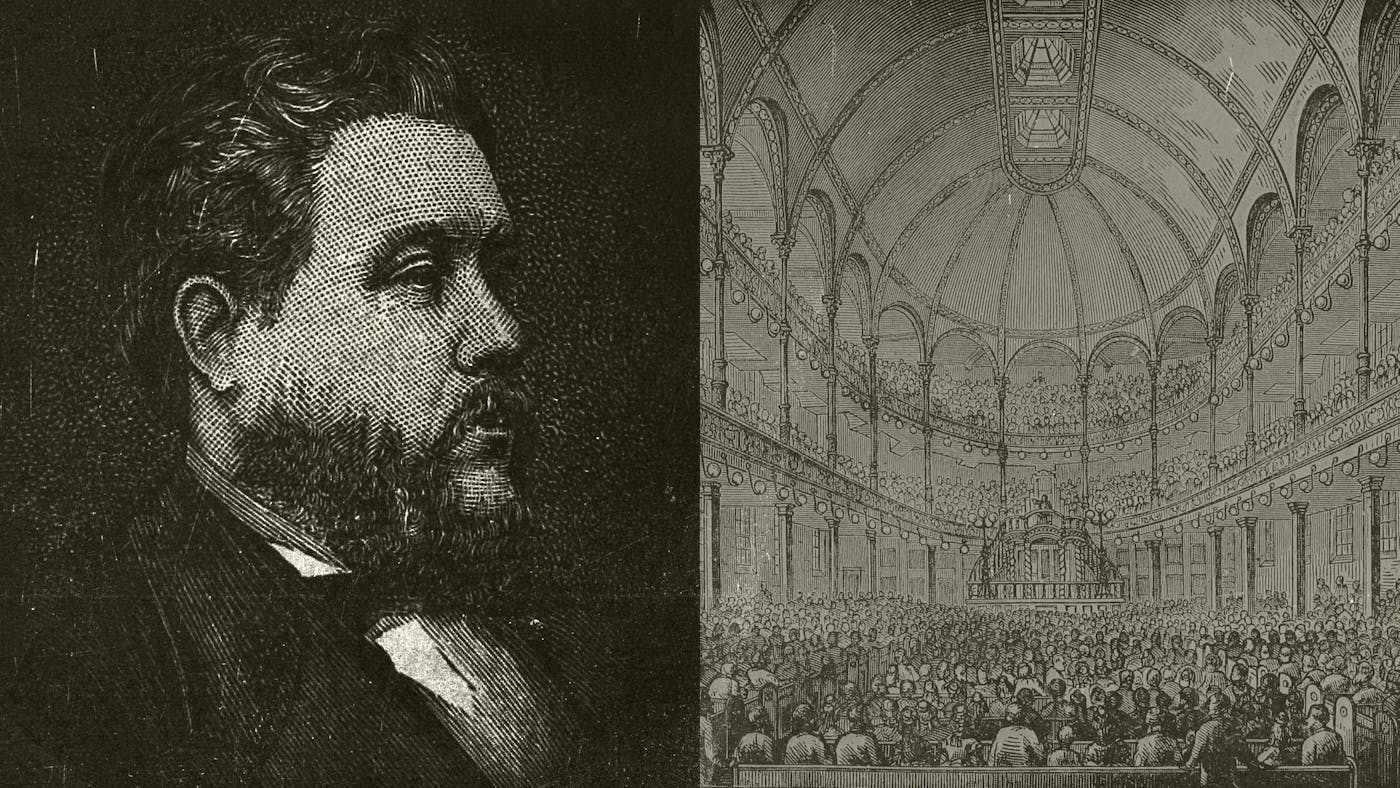Most people in the world have no experience of lasting joy in their lives. We’re on a mission to change that. All of our resources exist to guide you toward everlasting joy in Jesus Christ.

Interview with John Piper
Yesterday, in our Navigators Bible Reading Plan, we read Psalm 90 together. Or maybe you’re catching up with the reading still. That’s fine. No problem there. When you get to it, you’ll see why Psalm 90 is the special, much-beloved psalm that you, Pastor John, have referenced in thirty different episodes of this podcast already to answer all sorts of listener questions. Psalm 90 is rich. Sometimes you’ll focus your attention on verses 12 or 17. As you approach eighty years old, verse 10 looms more and more on your mind.
But no verse in Psalm 90 gets more mentions from you than verse 14. And that’s just it. It only getsmentions from you — brief mentions — usually simply listed in the texts you string together in a prayer you call I.O.U.S. (an acrostic), a one-minute prayer that you pray before you read the Bible in the morning. You’ve told us about that prayer in several episodes, which you can see in that new APJ book, if you have that. On pages 16 and 17, I put those episodes together on that I.O.U.S. acrostic.
So, you often mention but rarely dwell on Psalm 90:14: “Satisfy us in the morning with your steadfast love, that we may rejoice and be glad all our days.” For Christian Hedonists dedicated to the daily discipline of seeking our joy in God, this text is so huge. So, draw out ten minutes of insights from what you see in this text alone about our daily desire for God.
“Satisfy us in the morning with your steadfast love, that we may rejoice and be glad all our days” (Psalm 90:14). There are few things, Tony, that I love to do more than to take a Bible verse like this, a word from God — and I want to underline that: this is a word from God — and then squeeze it like a sponge that has been dipped in the river of God’s delights, and see how many cups I can fill. That’s what I love to do. That’s my life.
Sometimes, a sponge is so big and so squishy with glorious truth that you have to squeeze one end and hold that and then squeeze another end and hold that. So, I’m going to squeeze this verse four times.
- “Satisfy us.” I’m going to squeeze that.
- “In the morning.” I’m going to squeeze that.
- “With your steadfast love.”
- “That we may rejoice and be glad all our days.”
So, that’s the plan.
‘Satisfy Us’
“Satisfy us.” Squeeze that end. This is a God-inspired prayer to God. That’s what the Psalms are. This means that it is God’s will for his children, for us, to experience satisfaction. It is God’s will that Christians live with hearts that are deeply content and satisfied. He does not will that our hearts be continually restless or fearful or joyless.
“It is God’s will that Christians live with hearts that are deeply content and satisfied.”
God’s will for us is that we be able to say with the apostle Paul, with complete authenticity, “I have learned in whatever situation I am to be content” (Philippians 4:11) — that is, to be satisfied, to enjoy peace, contentment, confidence, gladness, joy. And notice that he’s not equating satisfaction with pleasant circumstances. They may be pleasant, and they may be devastating. God’s will is that we be satisfied. The rest of this psalm is pretty devastating.
And don’t miss that this is a prayer, which means it’s a battle. If it came naturally, we would not need to cry out for satisfaction. This is a gift from God. It’s not something we can make happen with food or caffeine or drugs or sex or wealth or health or friendships or family.
‘In the Morning’
So, the question, then, is, Well, what kind of satisfaction is it? What’s the actual source of the satisfaction? And before I tackle that — because he does answer that — he says one other thing first. So, number two, squeeze the sponge again: “in the morning.” “Satisfy us in the morning.” Why does he say that — “in the morning”? Because the morning is when we face the day.
According to this psalm, our days are filled with toil and trouble (Psalm 90:10). We’re like grass that is renewed in the morning and then in the evening fades away (Psalm 90:5–6). We are about to walk into a new day and experience the consequences of sin in this world, the limits of our own finiteness, the opposition of evil people, the futility of the fallen world system. That’s what the day is going to bring as we get out of bed and go to our kneeling bench and cry out to God.
So, what do we cry out for in the morning, facing that kind of day? We cry out in the face of sin and finiteness and opposition and futility. We cry out for satisfaction. We don’t expect all the circumstances to change; it’s just the fallen world we live in. We won’t be of any good to anybody — as George Müller taught us — if we all share in the moaning and the groaning of this sinful and broken world. What good is it to add to the world more of our own moaning and groaning?
God’s will is that we’d be satisfied in the face of all the trouble every new day will bring, which now brings us to the third squeezing of the sponge.
‘With Your Steadfast Love’
Where does the satisfaction come from amidst all this trouble? And the answer given is this: “with your steadfast love.” “Satisfy us in the morning with your steadfast love.”
So, when you get up in the morning, and you see before you a day of trouble and problems — problems upon problems that you cannot solve — and you feel weak and sick, and the things you thought were going to bring you some happiness have all crumbled, where do you look for satisfaction?
And Moses’s (this is a psalm of Moses, by the way) answer was, “I look to the love of God for me.” Isn’t that amazing? “God loves me,” Moses says. “God chose me before the foundation of the world,” we Christians say, “to be his treasured possession. God gave me existence. God sent his Son and paid for the failures that I’ve committed and offenses against him. God opened my eyes to see the worth and greatness and beauty of Christ. God promises to be my treasure. God promises to make everything, including all my troubles and problems, work together for my eternal joy. God loves me.”
That’s the source of his satisfaction: his steadfast love. And we pray for the ability to taste it. That’s what he’s asking. “Satisfy me in that. Help me enjoy that. Help me be satisfied in that every morning,” because his mercies are new every morning.
‘That We May Rejoice’
And now comes the fourth part of the sponge to squeeze — namely, “that we may rejoice and be glad all our days.” “Satisfy us in the morning with your steadfast love, that we may rejoice and be glad all our days.”
“God’s will is that we’d be satisfied in the face of all the trouble every new day will bring.”
So, with the words rejoice and be glad, he underlines the emotional richness of the word satisfaction. God is telling us to ask him to make us satisfied, to make us happy, to make us glad, to make us rejoice no matter what. And the amazing thing is that he says “all our days” — not just sunny days, happy days, but all our days. The reason it’s amazing is because, in the first thirteen verses of this psalm, our days are being swept away like a flood. We are returning to the dust. We are fading and withering like grass. We pass away like a sigh. All our days are full of toil and trouble. Those are words from this very psalm.
And yet now Moses prays, “God, do your amazing, internal, miracle work of satisfying us with your love, so that in all those days — all those terrible days, including the very last one — short or long, whether the days last a long time or whether they get blown away overnight, we might rejoice and be glad.”
Psalm 90:14 is a glorious word of God to his children in the midst of their troubles in this real world. And I pray that you and I, Tony, and all of our listeners would take hold of it and wring out of it every cup of blessing that we need.



Trebuie să fii autentificat pentru a publica un comentariu.